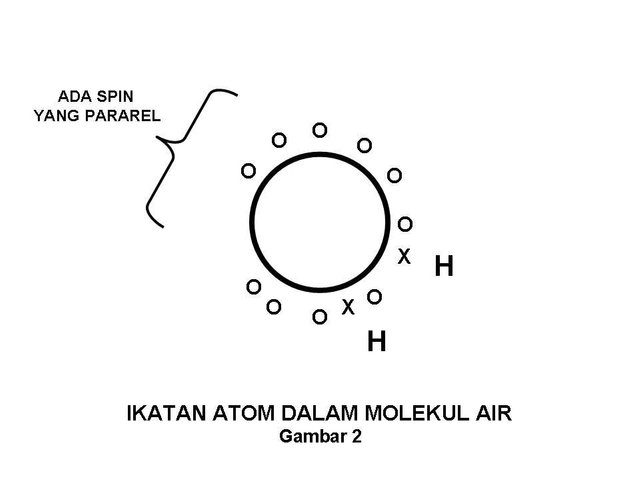BIOMAGNETISM ON HUMAN BODY
Biomagnetism is a magnetic field phenomenon produced by living organisms. Humans and other living things are known to also produce magnetic fields, although the levels are very small. This phenomenon among scientists is referred to as biomagnetism or biomagnetic derived from the word biology and magnetism. When the nature of the electric field is used in this biomagnetic phenomenon develops into bioelectromagnetic. The origin of biomagnetism is thought to have appeared several hundred years ago, related to the term "animal magnetism." The current scientific definition began in the 1970s, when more and more researchers began to measure the magnetic field generated by the human body. Gerhard Baule and Richard McFee in 1963 from the Department of Electrical Engineering, Syracuse University, New York detected the biomagnetic field of the human heart by using two coils that had 2 million rounds of windings connected by a highly sensitive amplifier.

In 1970, David Cohen of MIT using a SQUID magnetometer could measure the biomagnetic field of the human heart, then in 1972 by increasing the magnetometer's sensitivity he was able to measure the magnetic field around the head generated by brain activity. Furthermore, empirical observations show that diseases of the body's tissues change the normal biomagnetic field. In contrast, biomagnetic fields given to organ tissues can prevent the organ from disease. Furthermore, the magnetic field in humans can occur when we hold the breath and breathe smoothly, so it can polarize the fe (iron) ion in the red blood (hemoglobin). By doing this activity of breath, then man can improve and regulate the magnetic field that is in him, which in the end also can help human to maintain health and cure diseases that exist in him.

The human body consists of protein molecules containing elements such as C (carbon), H (hydrogen), O (oxygen), Cl (chlor), N (Nitrogen), I (iodine), P (Phosphorus) and containing metal elements such as Fe (iron). The magnetic properties of the material elements (atoms) lie in the direction of the spin (rotation) of electrons (negative charges) in the form of atoms or protons (positive charges) in the atomic nucleus. Material properties, the basic magnet lies in the core magnetic properties of the human body building elements, hydrogen, H20 molecules and iron.
A more static magnetic property is present in Fe ions, because the nature of the electron spin in its atomic shell is unidirectional. This magnetic property enlarges when the atoms are self-assembled so that their magnetic elements are unidirectional (called polarized). In the human body Fe, found in red blood grains (hemoglobin). Empirical data indicate that hemoglobin is a long chain of proteins where from multiple position pairs at both ends there is a bridge in the "heme" flat structure where the Fe ion is bonded (see Figure 1). Through this Fe ion the red blood can bind oxygen after passing through the lungs. By absorbing the juice from the digestive devices of food and oxygen, red blood replaces the damaged cells by oxidizing them (burning them with oxygen) and forming new cells
If in blood, the hemoglobin molecules are randomly positioned then the magnetic forces of the body are small, because of the magnetic field properties of the magnetic field. Humans can direct it by doing the exercises, namely by the functioning of the power of the mind and slowly regulate the breath.

Other substances that have magnetic properties but are not as strong as Fe in hemoglobin are water molecules (H20). The position of the hydrogen atom in the water molecule is not symmetrical and in this position, the two electrons in the oxygen complex (oxygen has 6 electrons) have a parallel spin and this causes the water to be slightly magnetic (paramagnetic). Water molecules are easily directed toward magnetic polarization. (see Figure 2). Furthermore there are other substances that are also magnetic considering the molecules of water bound molecularly with organic compounds in the human body.

A magnetic object will emit a field called a magnetic field. "Terrain" is a medium of influence emitted by the source where in this medium of influence can be done (transmitted) dynamics (movement). With the body is magnetic then the body will be affected or affect other magnetic fields. According to the law of magnetic imbasan, where such a magnetic pole will repel, while the opposite type of attraction. Since the magnet is always in dipole form, the polar interaction of two dipoles can produce pull, repulsion or another rotate if not in line. Rotation occurs, because one pole receives the pull and the repulsion of the bipolar.
thanks for reading
